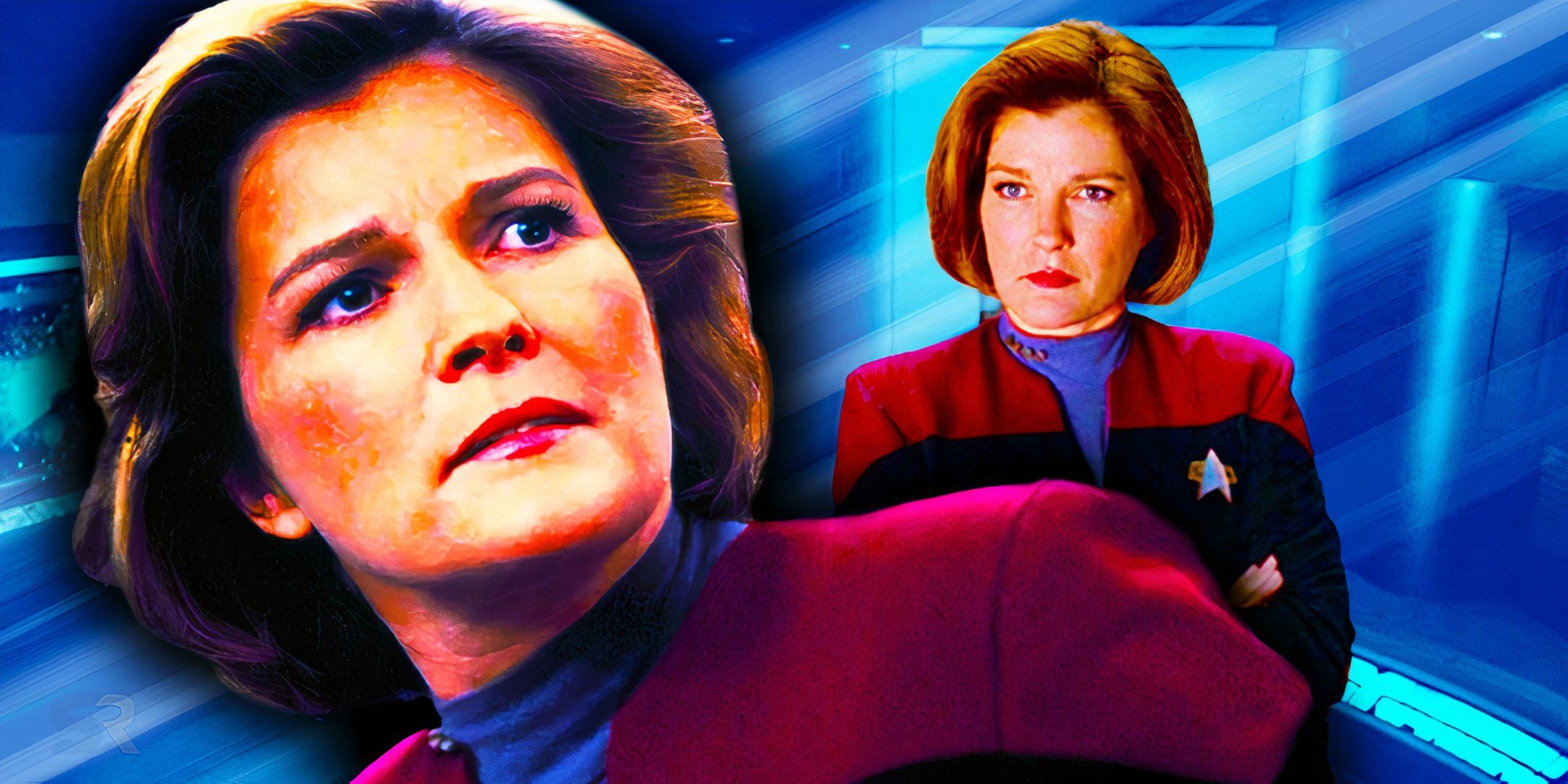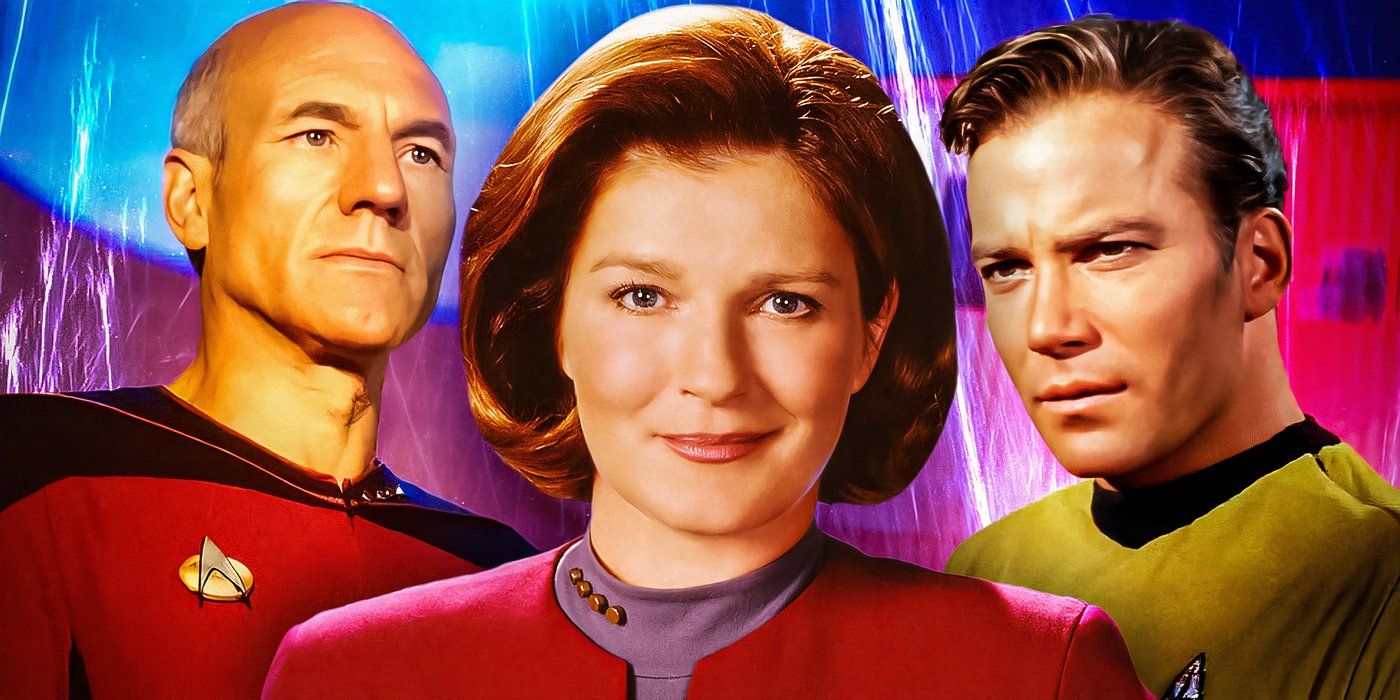Star Trek: Voyager season 5 dealt with Captain Janeway's (Kate Mulgrew) depression, a storyline that was important to Mulgrew for some particular reasons. When Janeway was created as the lead for Voyager's cast of characters, she began her journey in the franchise with a lot to prove. As the first female lead of a Star Trek TV show, Janeway's character was immediately under more scrutiny than other Captains before her. This also extended to Mulgrew as an actor and even Voyager's creative team in the way they wrote and presented Janeway to the audience.

Thanks to the efforts of everyone involved, however, Captain Janeway is widely considered one of the Star Trek franchise's best and most popular characters, with a legacy that continues to be important in Star Trek's modern era. Mulgrew's performance as Janeway during Voyager's run was incredible, and the creative team managed to strike the right balance of character traits. One incredibly smart move from the writers was allowing Janeway her vulnerabilities, including showing her struggles with depression and guilt during a particular episode of Voyager season 5.
Kate Mulgrew Explains Why Captain Janeway’s Depression In Star Trek: Voyager Season 5 Was So Important
Mulgrew felt showing Janeway's vulnerability was smart
In the first episode of Voyager season 5, "Night," viewers were treated to a very different side of Captain Janeway, as the episode showed her suffering from a severe case of depression. Janeway's altered mental state caused her to shirk her responsibilities as Captain and eventually led her to almost undertake a suicide mission. The version of Janeway in "Night" apparently received mixed reviews, but in an interview with Star Trek: The Magazine, Volume 1, Issue 18 during season 5, Kate Mulgrew explained why she liked the storyline. Read Mulgrew's full quote below:
"Janeway's heroism is now so well established that I'm always asking them to, you know, rock the boat a little bit… it seems that when we do that, though, it's controversial. 'Night' got really mixed reviews because people get uncomfortable watching a captain's depression, but I thought it was just such a wonderful thing to explore. Six years of this loneliness, of this absolute solitariness: how would she feel at this point, how would she manifest this great sadness?"
Mulgrew's words not only show how much she understood Janeway, but also how much she advocated for her character behind the scenes. Including a stark representation of Janeway's emotional struggle during "Night" made the character more well-rounded, and humanizing fictional characters in this way often makes them more relatable. This is especially true in a franchise like Star Trek which could occasionally get bogged down in the science fiction aspects of its premise. Allowing Janeway her emotional vulnerabilities and shortcomings was also a smart move, even if it garnered criticism.
Janeway Was A More Emotional Character Than Most Star Trek Captains (In A Good Way)
Captain Picard and Captain Kirk weren't on Janeway's level emotionally

In a lot of ways, Janeway was one of the most emotional Captains of Star Trek's classic era. The franchise's two most famous Captains before her, Captain Kirk (William Shatner) and Captain Picard (Patrick Stewart) were mainly known for being stoic and reserved. This was partially because of the time in which both characters were created, but it arguably hindered certain storytelling aspects of both Star Trek: The Original Series and Star Trek: The Next Generation, making both shows' main characters a little harder to relate to on an emotional level.
In contrast, Janeway was able to be the tough, no-nonsense Captain while also being a lonely, uncertain, and sometimes depressed character with a fierce love for her crew and a kindness that was on full display. This nuance is commendable because, at the time of Star Trek: Voyager's airing, female characters on television were often much less well-rounded, either falling victim to becoming overly emotional or swinging too hard in the other direction. That Star Trek's creative team was able to make Janeway a three-dimensional person without becoming a stereotype helped cement the character's legacy.



